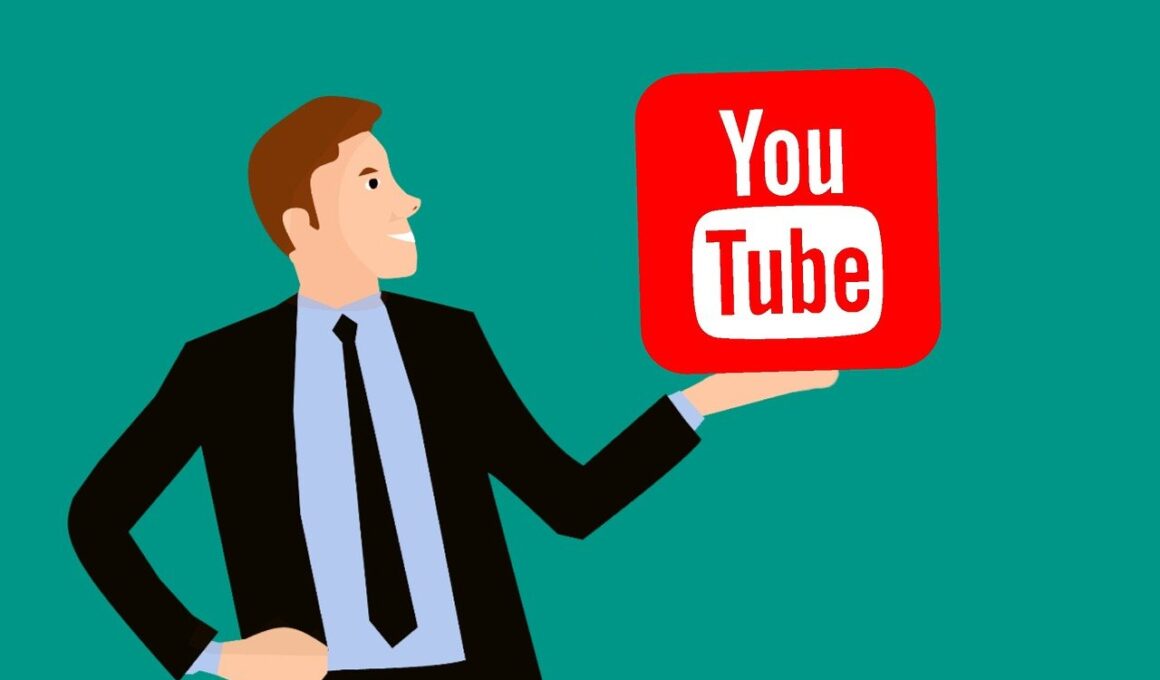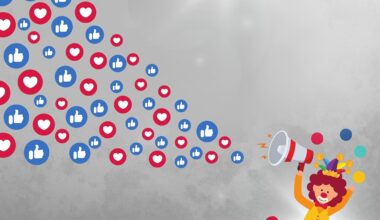The Ethics of Using Other People’s Content on Social Media
In today’s digital landscape, the use of other creators’ content has become incredibly prevalent. Many aspiring YouTubers and content creators often wonder about the boundaries of copyright and fair use. Copyright law was established to protect creators’ rights, but with the rise of social media, the lines have blurred significantly. Creators need to understand the concepts of copyright infringement and the legal ramifications that stem from it. Engaging with someone else’s content without proper authorization can lead to serious consequences, including content takedowns and legal actions. Therefore, it is crucial to ask: What constitutes copyright infringement? How can content creators protect themselves while still utilizing the vast resources available online? It is essential to comprehend not just the legal side but also the ethical aspect of using another person’s work. Respect for fellow creators contributes to a more robust and creative digital community. Proper attribution and permission can foster collaboration and innovation, leading to a more enjoyable experience for all involved. In this article, we will explore the landscape of copyright and fair use, highlighting best practices and considerations for content creators.
Copyright laws are designed to provide clear protections for original works, but the complexity of these laws can be daunting. Content creators must navigate terms of service from various platforms alongside copyright regulations. The concept of ‘fair use’ is particularly important in this context, allowing for limited use of copyrighted material without needing permission. However, the determination of fair use depends on several factors, including the purpose, nature, amount, and effect on the market value of the original work. For example, incorporating short clips, quotes, or images might fall under fair use, especially if the new work adds commentary or critique. Yet, the gray areas in fair use often lead to disputes. Understanding these nuances is essential for content creators who wish to avoid copyright violations. Additionally, sharing original creations can be beneficial when navigating copyright claims. By encouraging user-generated content, companies can create a more engaging platform while ensuring adherence to copyright laws. Overall, a fair use approach can foster creative expression but requires careful consideration by creators to respect the rights of original authors.
Best Practices for Ethical Content Use
To maintain ethical standards in content creation, creators should adopt best practices when using other people’s work. First and foremost, obtaining permission is always the safest route. By reaching out to original creators, you can establish a collaborative relationship grounded in respect. Many creators appreciate the acknowledgment of their work and might allow usage without any issues. Additionally, providing proper attribution helps to clarify ownership and honor the original creator’s contributions. Always include links to the source material or credit the creator in your video descriptions, enhancing credibility and supporting transparency. Utilizing licensed stock images and music is another effective way to deploy other people’s work responsibly. Platforms specializing in royalty-free resources can offer a treasure trove of content that can be used without incurring legal complications. Furthermore, when considering transformative use within fair use guidelines, ensure that the new creation adds significant value or commentary on the original work, marking its distinct individuality. By following these principles, creators can forge a path toward more responsible and ethical content sharing that respects copyright laws.
While the legal aspects of copyright are crucial, the ethical dimensions cannot be overstated. The act of using someone else’s content without permission can harm the original creator, both financially and creatively. It can lead to loss of accolades for their hard work and diminish their incentive to produce more content. Social media thrives on collaboration and shared experiences, but without responsible engagement, harmful practices can damage the overall ecosystem. Moreover, ethical content creation involves considering the communal nature of creativity. Public figures and creators must recognize their influence and the responsibilities that come with it. Using content as a learning tool or providing commentary can enhance public discourse, but doing so without acknowledgment is unfair to those who contributed to the original piece. Striking a balance between leveraging existing works and cultivating a culture of credit and respect is vital for fostering a vibrant creative community. Ultimately, each content creator has the power to set a tone for ethical practices that promote collaboration, innovation, and respect, aligning their efforts with a commitment to integrity in all content sharing activities.
Consequences of Ignoring Copyright Laws
The repercussions of disregarding copyright laws can be severe and detrimental to a creator’s career. Content creators risk facing copyright strikes, which can lead to demonetization or suspension of their accounts on platforms like YouTube. Such penalties hinder a creator’s ability to earn a living through their craft, making it crucial to understand the implications of copyright violations. Additionally, engaging in plagiarism can significantly damage a creator’s reputation and credibility within their niche, often resulting in backlash from audiences and fellow creators. Building a positive image takes time, and a single incident of copyright infringement can unravel all efforts. Furthermore, legal actions can lead to costly settlements or court fees. By understanding and respecting copyright laws, creators protect not only themselves but also their communities. When creators operate ethically, they contribute to an environment that encourages sharing, learning, and collaboration, ultimately benefiting all parties involved. Taking active steps toward respecting intellectual property helps maintain an atmosphere of trust and support. In conclusion, awareness of copyright laws is fundamental for successful and sustainable content creation.
One way to facilitate responsible content creation is through educational resources that provide clarity on copyright and fair use. Many organizations and platforms offer workshops, webinars, and guides to help creators understand these issues more comprehensively. Engaging with these resources can empower creators to make informed decisions about their use of content. Additionally, platforms like YouTube and Vimeo have established policies regarding copyright and fair use, outlining creators’ rights and responsibilities. Familiarizing oneself with these guidelines can significantly reduce the likelihood of inadvertently infringing on someone else’s work. Moreover, reaching out to fellow creators for advice can foster community, and sharing experiences can highlight best practices and pitfalls to avoid. Networking within creator communities can aid in establishing a culture of respect and responsible content governance. By working collaboratively, creators not only enhance their skills but also contribute to a shared understanding of copyright ethics. Collaborative learning is beneficial in paving the way for innovation while ensuring respect for individual creators’ rights. In summary, leveraging educational platforms and resources fosters an ethical landscape within the YouTube content creation ecosystem.
Conclusion: Embracing Ethical Standards
In summary, the ethics surrounding content creation on platforms like YouTube revolve around a delicate balance of respecting copyright laws while fostering creativity. As the landscape continues to evolve, the significance of maintaining ethical standards has never been more paramount. Awareness of copyright and fair use is vital for anyone looking to engage with existing content in a meaningful way. Creators should prioritize obtaining permissions, offering proper attributions, and circumspectly navigating the realms of fair use. Emphasizing collaboration and community-building can enhance the overall content creators’ experience while honoring the work that others contribute. By establishing an environment anchored in respect, creators can work together to enrich the digital landscape, ensuring that original creators receive the recognition they deserve. Moreover, creators must be vigilant in staying informed about copyright updates or changes in law, equipping themselves to navigate this complex soundscape effectively. Ultimately, every YouTube creator has the opportunity to be a responsible contributor, engaging with others’ works ethically and transparently. By embracing these principles, the community can support creativity while upholding the rights of all creators within the digital ecosystem.



